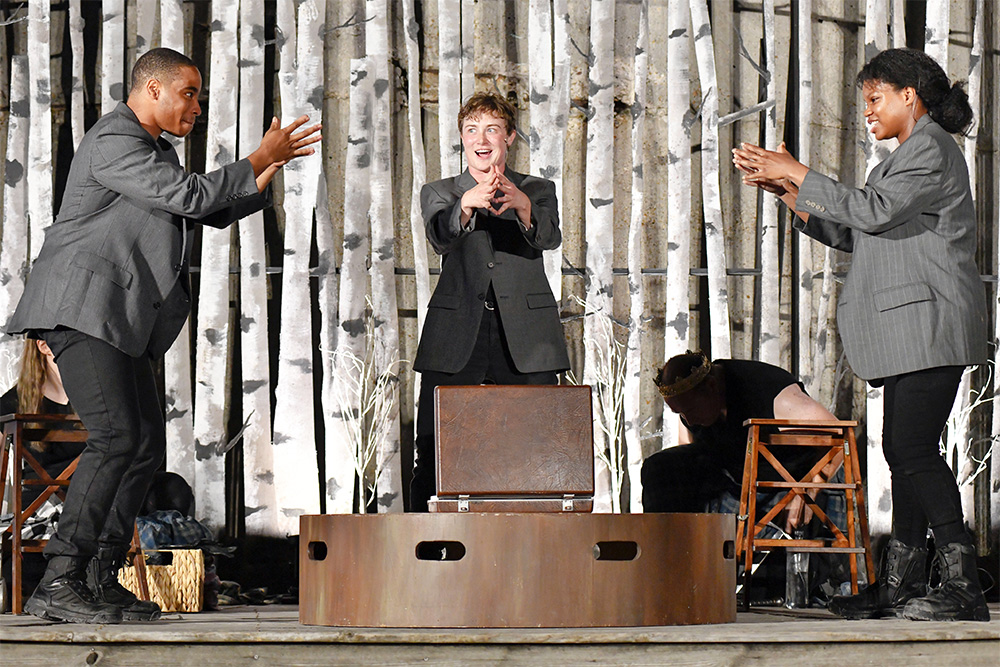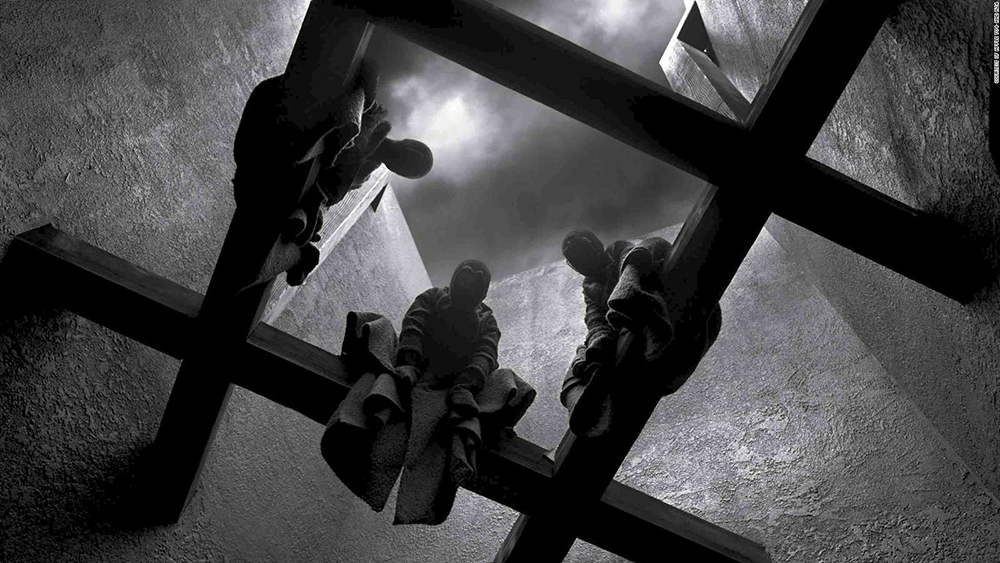Do you know the origins of the word “assassination” or the spell “Double, double, toil and trouble”? Like many things in the modern English language, it’s Shakespeare. More specifically, Shakespeare’s most infamous and haunting work: the Scottish play, Macbeth.
Macbeth is a general under King Duncan in 11th-century Scotland. When three witches prophesize his ascension to the throne, Macbeth and Lady Macbeth kill the king and a score of other characters to quench their thirst for power. Paranoia and madness plague them, leaving tyranny, murder, and civil war in their wake. The Scottish throne hangs in the balance as destiny, ambition, and pride sound as war horns behind the general’s banners.
This year, Tennessee Shakespeare Company (TSC) has selected Macbeth for its free Shout-Out Shakespeare Series. The series allows TSC to tour a condensed version of one of Shakespeare’s plays and offer people an accessible way to experience his work, as well as support the work of the education staff’s Macbeth Initiative. The initiative is part of the National Endowment for the Arts’ Shakespeare in American Communities project, through which TSC offers workshops to both teachers and students on how to teach and interactively learn Shakespeare’s work on their feet and in the thrall of performance. The tour of Macbeth showcases these teaching artists in a live production.
One of the challenges of having a touring production performing outdoors is adapting to the space. For last Friday night’s show at the International Harvester Managerial Park in Lakeland, the company accomplished this masterfully, beginning just as the sun set behind the tree line. The actors melted out of the horizon in a haunting pageant of choreographed movement that set the tone of elegance and intensity that would build up over the next 85 minutes.
This production has, of course, been scaled down from the full version of Shakespeare’s work. Director Stephanie Shine weeded through two and a half hours’ worth of text and successfully showcases who these characters are as humans. The action and relationships complement the bard’s poetry, so the audience receives a clear message without getting lost in the language.
Shine is also working with just six actors playing 25 characters. They seamlessly transition from character to character through techniques such as the old man’s physicality adopted by Rose James’ portrayal of King Duncan or Nicolas Dureaux Picou’s dialect work for Siward and Porter. Allison White’s costume design does wonders in helping the audience track which actor is playing what character. The actors sport kilts, color-coded to distinguish the different family houses and made from what looks to be repurposed flannel shirts that give a minimalist modern edge to the show’s overall design.
The most compelling point in any production of this play is the relationship between Macbeth and Lady Macbeth. The actors, TSC veterans Michael Khanlarian and Lauren Gunn, have explosive chemistry, and Khanlarian’s magnetic portrayal of the infamous Scot draws wandering eyes even when the scene’s focus is not on Macbeth. If nothing else convinces you to see this play, Khanlarian’s “Tomorrow and tomorrow and tomorrow …” speech is an astounding rendition.
The work of Pershon Harper, Rose James, and Kellan Oelkers as the witches displays tight synchronicity, giving the impression of one mind in three bodies. When they magically emerge to forewarn Macbeth of his fate, it gives that quintessential spooky element audiences crave so close to Halloween.
Every able person with the time to see this production, should. Aside from the stellar skills of the six-actor ensemble, seeing Shakespeare’s writing in motion and in real time is how we keep these works alive.
TSC’s Macbeth runs every weekend until October 23rd. For locations and touring schedule, visit tnshakespeare.org.



 Tennessee Shakespeare Company
Tennessee Shakespeare Company